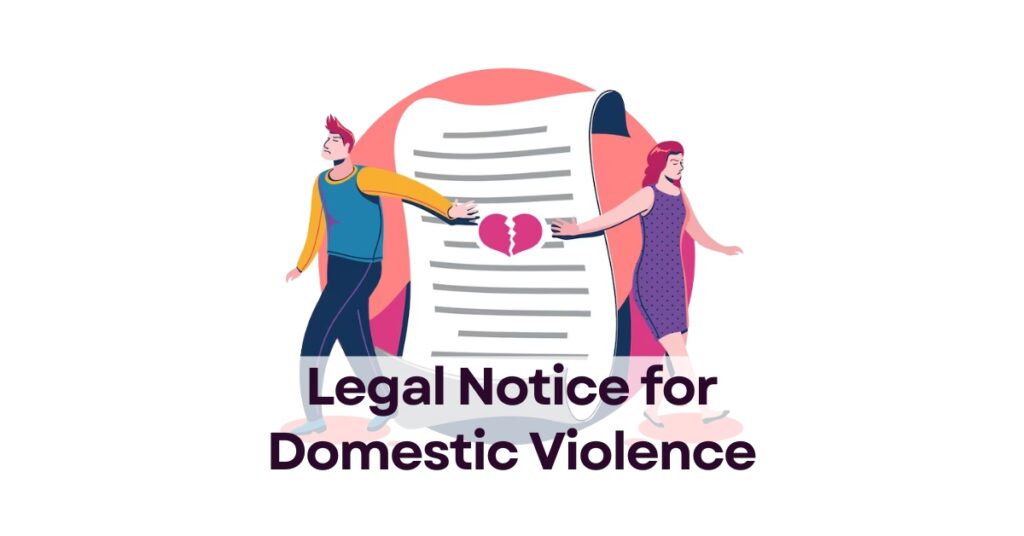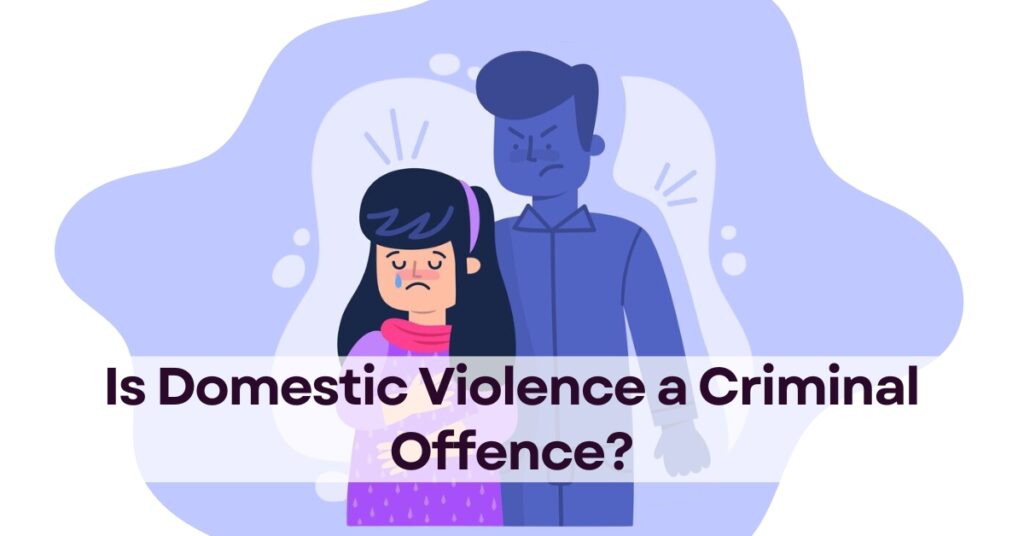Table Of Content
- Is Domestic Violence a Cognizable Offence?
- Is Domestic Violence a Bailable Crime?
- What Legal Actions a Victim can take for Domestic Violence?
- Is Domestic Violence a Criminal Offence in India?
- Can a Wife ask for Divorce on the Grounds of Domestic Violence?
- How to get Legal Advice for Divorce on the Grounds of Domestic Violence?
- Can I Send a Legal Notice against Domestic Violence?
- Can a Wife withdraw from a Domestic Violence Case?
- Conclusion
Domestic Violence refers to a part of an abusive behavior used by one individual to exert power and control over a partner or family member in a domestic setting. The abuse can manifest in various forms such as physical, emotional, sexual, psychological, or financial. Each design to intimidate, belittle and dominate the victim.
Is Domestic Violence A Cognizable Offence?
Yes, Domestic Violence is regarded as a cognizable offence under various Legal frameworks across the world, which means that it is considered serious enough to warrant immediate attention from law enforcement, in such cases the police have the authority to arrest the perpetrator and initiate an investigation without requiring a magistrate’s approval.
Is Domestic Violence A Bailable Crime?
While Domestic Violence is a cognizable offence, whether it is bailable or not depends upon the severity of the harm caused by the perpetrator to the victim. In most cases, especially where the harm involves a threat to life or limb, the violence can be classified as non-bailable, meaning that bail cannot be granted easily to the accused.
However, in some instances where the harm is minor or less severe, bail can be granted depending upon the nature of the charge, evidence, and the discretion of the court.
What Legal Actions A Victim Can Take For Domestic Violence?
A victim of Domestic Violence has several Legal avenues available to seek protection and justice each designed to address the varying aspects of their safety and well-being.

- Filing a police report– The first step a victim may take is to report the abuse to law enforcement to initiate a formal investigation and the police may take immediate actions such as arresting the perpetrator, issuing a warning, or even obtaining an emergency protection order.
- Obtaining a protection or restraining order– Victims can seek a protection order (sometimes known as a restraining order or injunction) which Legally prohibits the abuser from contacting and approaching them. These orders can be temporary or permanent and are enforceable by law.
- Civil lawsuits for damages– In addition to criminal proceedings, a victim may pursue a civil lawsuit for damages seeking financial compensation for any physical or emotional harm suffered because of the abuse. This may include medical bills, lost wages, or emotional distress.
- Emergency custody orders– In cases where children are involved, a victim can seek an emergency custody order to ensure the safety and well-being of their children often accompanied by visitation restrictions for the abuser.
These Legal remedies combined with social support structures provide a robust framework for victims to protect themselves and seek redress ensuring that they can escape the cycle of abuse and begin to rebuild their lives.
Is Domestic Violence A Criminal Offence In India?
Yes, Domestic Violence is a criminal offence in India. The Legal framework addressing Domestic Violence in India primarily involves two key laws:
- Protection of Women from Domestic Violence Act, 2005- While this act is primarily a civil remedy, it recognises Domestic Violence as a form of abuse and provides Legal protection to women who face violence within their homes. It includes physical, emotional, sexual, and economic abuse and allows victims to seek orders for protection, residence, and maintenance. The act empowers women to approach a protection officer or the magistrate’s court for relief such as protection orders, residence orders, relief, and custody orders.
- Bharatiya Nyaya Sanhita, 2023- Under section 85, cruelty towards women by their husband or their in-laws’ states that if a husband or his relative treats a woman with cruelty both physically and mentally, then they can be held Legally guilty. This set of laws empowers women to report the abuse of their husbands and in-laws by making sure that the accused gets punished.
Can A Wife Ask For Divorce On The Grounds Of Domestic Violence?
Yes, a wife can indeed seek divorce on the grounds of Domestic Violence under the Indian Legal system. Domestic Violence is recognized as a form of cruelty which serves as a valid ground of divorce as outlined in various personal laws governing marriage.
- Hindu Marriage Act, 1955– A wife may file for divorce under Section 13(1)(ia).
- Special Marriage Act, 1954– Under Section 27(1)(d), divorce can be sought by a wife.
- For Muslim women, the Muslim Personal Law (Shariat) Application Act, 1937 provides Talaq or Khula, a form of divorce initiated by the wife.
- In the case of Christian women, the Indian Divorce Act, of 1869 allows for divorce under Section 10, on the grounds of cruelty which encompasses Domestic Violence.
How To Get Legal Advice For Divorce On The Grounds Of Domestic Violence?
Seeking Legal advice for divorce on the grounds of Domestic Violence is an important step towards ensuring both Legal protection and personal safety. Here is how one can navigate this process with grace and clarity:
- Visit our website edrafter.in and click on “Legal Advice” in the Services section in the main menu of our website.
- Now, you will be redirected to our Legal Advice page where you need to fill a simple form to provide us details.
- Now, we will schedule a call for you with the Advocate and share the details with you on email.
- During the call, Advocate will discuss your case and will advise you with all the Legal options available for you.
Can I Send A Legal Notice Against Domestic Violence?
Yes, you can send a Legal notice against Domestic Violence. Sending a formal Legal notice can be an important step in asserting your rights and seeking remedies before pursuing formal Legal actions.
A Legal notice in case of Domestic Violence is a formal communication sent to the alleged abuser, stating the abusive behaviour that has taken place, asserting your rights and warning the abuser about the potential Legal consequences if the abuse continues. The notice serves as an official warning and may allow a prosecutor to file a complaint to the police seeking a restraining order or initiating a civil lawsuit.
Can A Wife Withdraw From A Domestic Violence Case?
Yes, a wife can withdraw from a Domestic Violence case. Still, this decision can depend on various factors including the stage of the case, the Legal system in place, and the case’s specific circumstances. It is important to note that while a wife may choose to withdraw or discontinue the case, there are often implications especially if the case involves serious charges or if the court believes that the withdrawal may not be in the best interest of justice, particularly in cases where public safety is a concern.
Conclusion
While a wife has the Legal right to withdraw a Domestic Violence case, the decision must be approached with careful consideration and, ideally, Legal counsel. The court will assess whether the withdrawal is made voluntarily and without undue pressure, ensuring that the complainant’s safety and well-being are not compromised. It is crucial to understand the implications of such a decision, as it may affect future Legal recourse or protection under the law.


